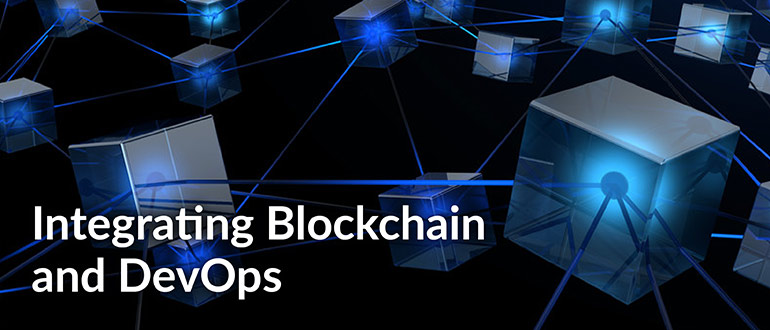Blockchain projects with the DevOps culture
You surely heard about DevOps and blockchain technologies separately but can they work in the collaboration and does the Blockchain DevOps even exist? In today’s article, we’ll talk about both approaches and will try to understand how they can be connected.
What is DevOps?
Let’s start with DevOps definition. DevOps in the methodology or even culture of software development. There is a huge myth about DevOps being a combination of developers and IT operations in one team but this is not correct. In reality, DevOps culture provides great work productivity within teams and makes them collaborate in the most efficient way. DevOps methodology provides the Infrastructure as Code and CI/CD pipelines. What do these terms mean?

Infrastructure as Code is the ability to represent the whole environment for software deployment as code written in one file. For example, the developer needs some specific conditions for software, and the DevOps engineer creates the Terraform manifest where all these conditions are described. Also, conditions in the manifest can be changed. Manifest is written on the descriptive language, so it is very simple to work with it and change it. Before the DevOps methodology, the system administrators changed the environments on the on-prem servers each time when developers needed new conditions for testing and running. Now it is as simple as selecting the needed manifest – and the needed virtual environment is created in mere seconds!
Concerning the CI/CD pipeline, this is a Continuous Integration and Continuous Delivery. These processes are a logical continuation of IaC. CI/CD provides the ability to develop, test and deploy code without pauses. The developer writes code in small batches that can be easily tested and integrated to the main repository (CI). The process of building, testing, staging and releasing new code is automated, greatly reducing the time-to-market for new features (CD). Thus, DevOps philosophy provides a very efficient approach to software development.

What about blockchain?
Blockchain became popular after bitcoin rose to popularity. But this technology is not for the finances only. Blockchain successful works with multiple industries like banking, real estate, social services, environment control, energy market and others. The main idea of blockchain technology is to make decentralized and automatic data storage and distribution. We can literally imagine blockchain as a chain of blocks or ledger. This is an immutable structure that keeps hashes or descriptions of some transactions. The immutability provides the security of the whole process. Thus said, blockchain can be useful in every area where such security and transaction safety is needed.
DevOps with blockchain
Blockchain and DevOps are very efficient and can interact with each other. Blockchain in DevOps is accomplished by using Docker containers, Kubernetes, Terraform and other great instruments. The implementation of DevOps culture in the blockchain is quite different than in software development, for example. The main difference is in organizing accurate work of ledgers. Tools like Kubernetes have a lot of instructions, FAQs and strong community ready to help. But in the blockchain technology, DevOps is always a very custom thing.

Unfortunately, there is no ready solution to provide DevOps services to the blockchain, so you need to reinvent the wheel every single time.
Is there the best way to implement DevOps in the blockchain?
Actually, there is one way to solve it. You need to find experienced DevOps engineers. It will be better if they already have worked with the blockchain. It means they might have some ready solutions or at least the idea of what to do. It is pretty hard to find such engineers but here is some piece of advice:
- The majority of qualified DevOps engineers work with Managed Service Providers (MSP). Such companies provide dedicated teams for various projects, so engineers have the ability to work with different technologies, including blockchain. This is very important for experienced DevOps engineers.
- There are some unscrupulous MSPs who can spoil your project, so you should choose wisely. Finding a reliable MSP is the main point of success. Ask MSP about previous successful cases, read the reviews about your future partner and find out the strategy of work before you start cooperating.
You can hire the DevOps engineer or even the whole team in-house, of course, but referring to the MSP is still the better choice despite the risks. With a reliable MSP you’ll save a lot of costs and receive a significant result.
